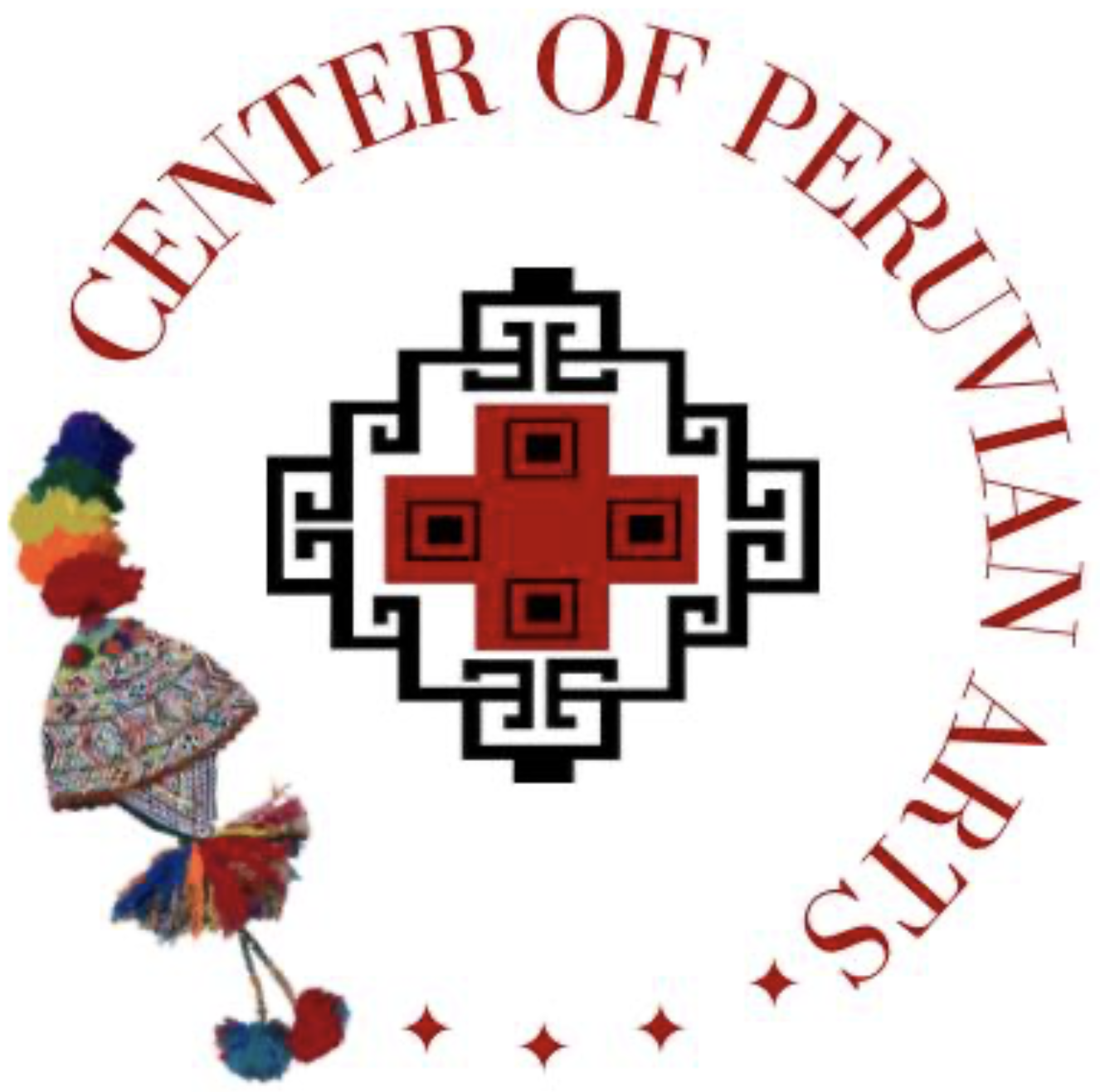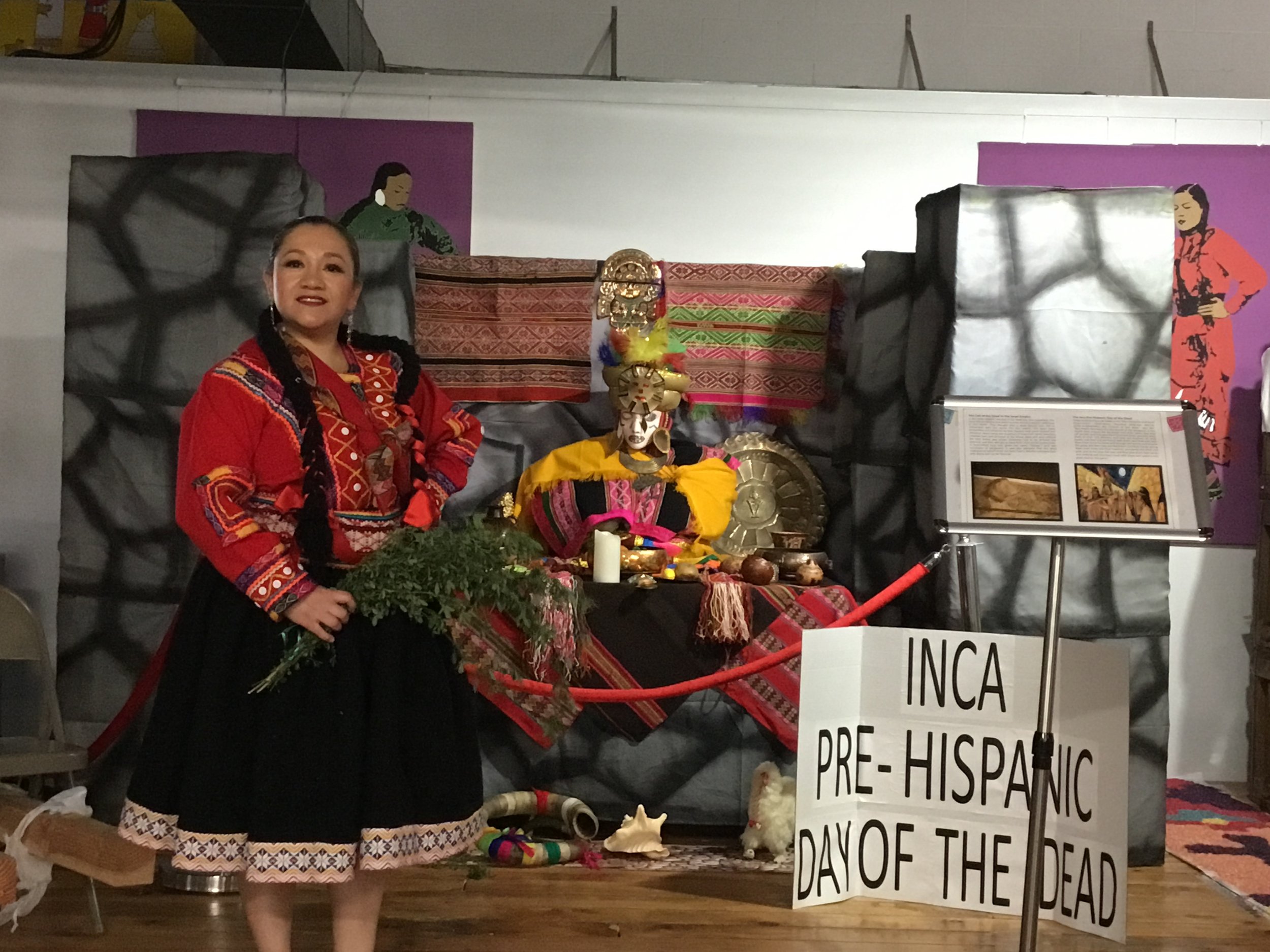Trickster Cultural Center - Native Connections
190 S. Roselle Road, Schaumburg, IL
(847) 301-2090
https://www.tricksterculturalcenter.org
In celebration of The Day of the Dead and America’s indigenous heritage, The Trickster Cultural Center - Native Connections is hosting a special exhibition led by Joseph Podlase/CEO, Gina Rixas/program Coordinator, Desiree Salpietro/Curator and Special event coordinator. With the participation of “The Teotlecuilli Aztec Dance Group,” leading by Fabiola Avila and Àngel Barajas, sponsored by The Kenneth Young Center, this event showcases the special place of The Day of the Dead in Mexico’s Aztec culture, while the collaboration of “The Peruvian Folk Dance Center'' leading by Ruben Pachas and Jessica Loyaga highlights features of pre-Hispanic Inca culture.
The exhibition opened on Saturday, October 30 at 10 a.m. with a Pre-Hispanic Aztec ceremony honoring the world’s four cardinal points, then continued with an enactment of the “Chinelos Dance” from the state of Morelos in Mexico. This was followed by an explanation of the Aztec altar and aspects of pre-Hispanic Inca culture, culminating with the Inca dance “Soq'a Machu Chullpas,” which means the “bad breath of the old souls buried in Incan cemeteries.” The event concluded with a free showing of the film Coco, under the direction of Adrian Molina.
Community organizations and businesses were present, with such activities as a workshop to make decorated skulls for children, youth and adults also featured.
The exhibition will remain open until Saturday, November 6—please come visit!
Video
Jessica Loyaga
Gaby Alma
Alvaro Anco
Ruben Pachas
Victor Peña
Soq’a Machu Chullpas dance
Victor Peña and Gaby Almanza
“The Teotlecuilli Aztec Dance Group,” and “The Peruvian Folk Dance Center'' highlights features of pre-Hispanic Inca culture.
Ruben Pachas playing the tropical mollusk Strombus was used in the Andes as a ceremonial trumpet, and this type of instrument was known as a pututo.
The Strombus is a warm water seashell associated with the cycle of water. Water originates in the sea and then returns to the earth as rainfall, and via rivers and canals it irrigates the land and causes plants to flourish. Pututos, which produce a strong, deep sound, were played by trumpeters in ceremonies associated with water.
Strombus shells were also important offerings to the gods, who had to be thanked for the blessings they bestowed. That is why they are found in groups of offerings placed in important temples, beginning during the Formative Epoch. In ancient Peru ceramic trumpets were also made, and their designs recreated the shape of these seashells.
Ceramic Mochica trumpeter; Mochica Strombus seashell pututo; Mochica ceramic pututo; miniature gilded copper Strombus; silver Chimú whistles; seashell whistles.
Museo Larco, Lima - Peru.
Artistic directors of The Teotlecuilli Aztec Dance Group and The Peruvian Folk Dance Center.














